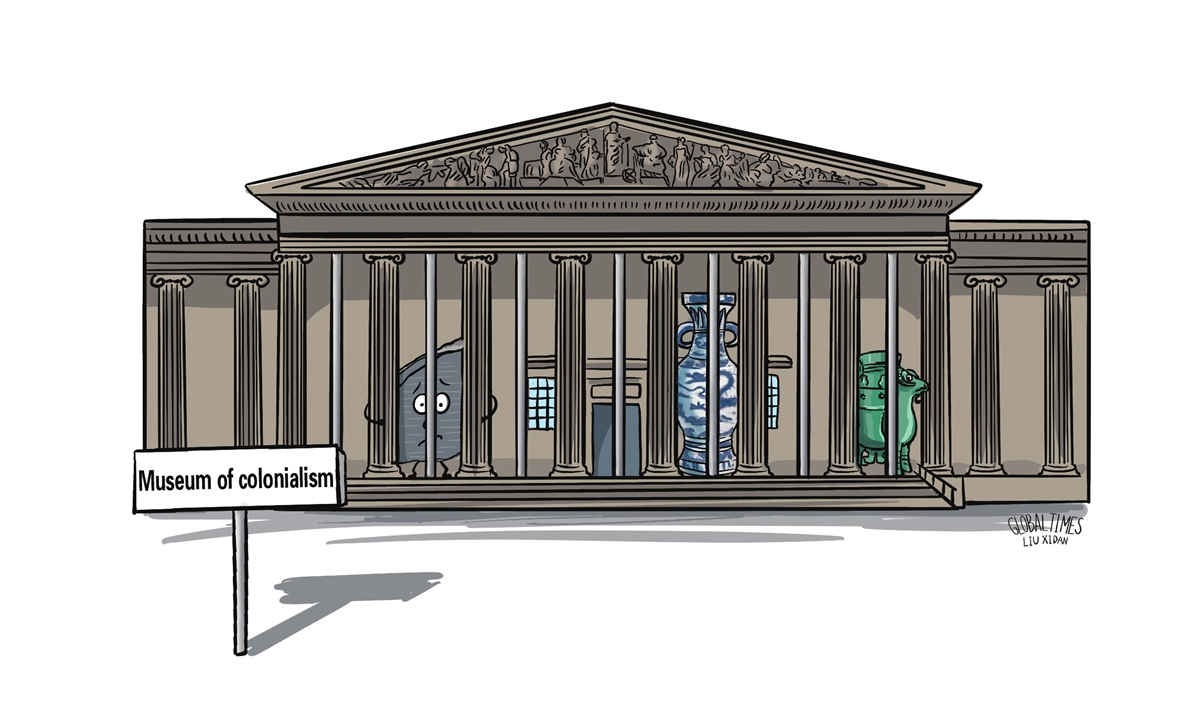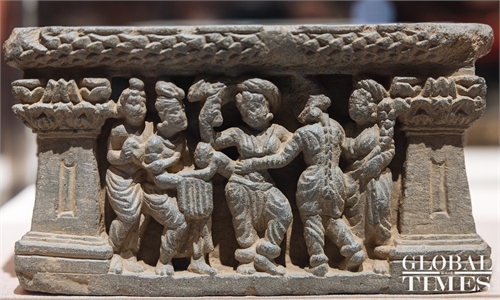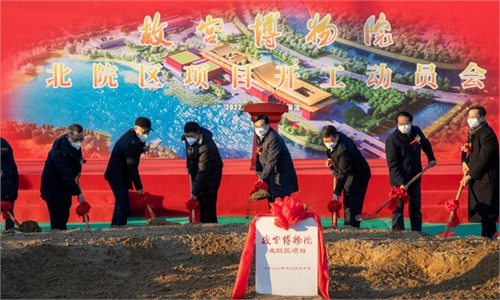ARTS / ART
‘Awakened conscience’ not enough to return looted relics

Illustration: Liu Xidan/Global Times
Zahi Hawass, Egypt's former minister of state for antiquities affairs, has taken to the world's largest petition platform, change.org, to condemn the British Museum and ask it return Egypt's Rosetta Stone. The petition has gained a prominent number of signatures by people from numerous cultures and races and put the UK's pride cultural spot under a spotlight of shame.The Rosetta petition is a sharp knife stabbing at the colonizing mindset of Western museums, urging them to wake up from their "21st century imperialism" delusion.
But, why would Western museums want to wake up when artifacts like the Rosetta Stone continue bringing them lucrative profit and cultural pride? Their cultural robbery must be shamed.
Due to Western museums' lack of a moral compass, countries such as Egypt, China and Nigeria have had to put forth even more effort to bring their stolen cultural treasures home.
Even though many of these countries may find it difficult to defeat Western countries' hegemony on their own, they can still turn to the international community, creating public pressure, to seek the return of their cultural relics.
The strategy of using publicity, such as getting big names to support the return of looted relics, creates a deliberate public crisis for Western museums, removing their "fake moral" fig leaf in front of the public.
And it works, which can be seen from the example of "Parthenon partnership."
According to the partnership, the UK has agreed to lend Greece Parthenon relics.
While this is good for Greece, the entire concept of "lending" a country it's own property is a ridiculous delusion because by what right can you "lend" something that was never yours to begin with?
While putting museums under public pressure can force museums to confess their sins, however, most of the time, this only leads to fake, polite statement of "acknowledgement," without any practical action.
Behind this fake veneer of politeness lies the Western arrogance that devalues de-colonized countries' potential in modern times.
Even worse, Western museums try to excuse their behavior by attempting to present the narrative that they are "rescuing" looted relics by saying they weren't being taken care of in their host country or that they may be stolen at some point in the future if they are returned.
The idea that Egypt cannot protect its own relics is laughable.
The country is about to launch the Grand Egyptian Museum (GEM) in 2023.
With 100,000 artifacts, it is one of the largest archaeological museums in the world and incredibly advanced.
It is clear the Rosetta Stone doesn't need the British Museum's "protection."
China was once ransacked by invaders, but today it no longer fears them. With its increased international discourse power and visionary policies, it has international friends all over the world, including those to which Western museums owe a debt.
How far can we trust Western museums' moral leadership? The answer is uncertain because if the conscience of Western colonists was reliable, there would not have been centuries of colonial history.
Even when they do take steps in the right direction, like Germany did in 2022 when it returned 20 looted Benin Bronzes to Nigeria, such an awakened conscience would be hard to maintain without international pressure and legal mechanisms.
Although the efforts to bring relics home face legal challenges such as the 1970 UNESCO Convention not having a retroactive effect, the cultural alarm set for Western museums will continue to ring until they wake up.
"Can we still trust Western museums? No, but also yes," Li Molun, a relic retrieve expert, told the Global Times.
"No matter whatever considerations they have, be it the economic need to work with former colonized countries or purely just a show of humanity, the de-colonization of museums is an inevitable future trend that will one day become a universal rule for them to follow," Li added.


